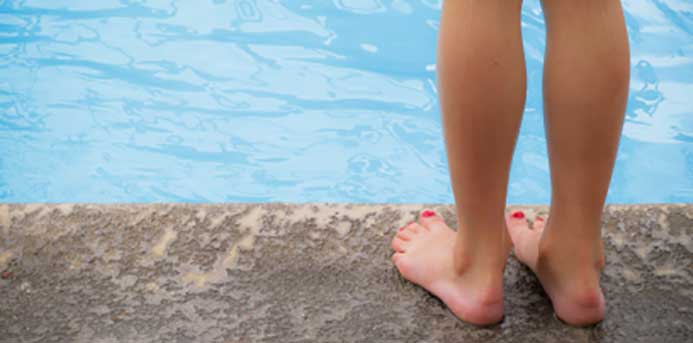Souvenirs are great to bring home from a summer vacation—a skin infection? Not so much.
Staph and MRSA infections are on the rise, and with it, the number of people who are actively carrying these illnesses out into the community. Staph bacteria is often present on the skin, and it’s increasingly resistant to antibiotics. With that in mind, it’s important to be vigilant about your health and use common-sense measures to avoid an infection.
Dr. Melinda Simon, a Deerfield dermatologist, says that while health care workers are always at an increased risk for exposure to staph and MRSA, it’s the bacteria’s ability to spread via skin-to-skin contact that should make everyone cautious.
What can people do to minimize their exposure? “Hygiene is going to be really important,” Dr. Simon says. “Thorough handwashing is important. We really recommend people use soap and water for about 10 or 20 seconds when they’re out and about in public places.”
Simon also recommends using a paper towel to turn faucets on and off, using your elbow to turn on the dryer, and keeping hand sanitzer nearby.
Michelle Moore, an ex-pharmaceutical scientist, is an advocate of natural therapies for staph infections and heads up Staph-Infection-Resources.com. She recommends essential oils, such as tea tree oil, for treatment.
“For skin infections, including community(-acquired) MRSA, I would say the essential oils are one of the best things that you can use topically on your infection,” Moore says. “Tea tree oil is one of the safest and gentlest, and you can use on babies to the elderly.”
Here are a few more tips from Dr. Simon and Staph Infection Resources:
- A towel is your friend. Dr. Simon recommends putting a fresh towel down on loungers. Avoid sharing towels with friends and teammates during sporting activities.
- Get yourself in some hot water. Athletes, especially. “With athletes, I really recommend hot soapy, water for washing themselves, as well as putting their athletic equipment and clothing in hot water,” Dr. Simon says.
- When traveling, sanitize “high-touch surfaces.” Moore says to consider hotel room doorknobs, the television remote, the phone, etc. Don’t make fun of your germaphobe friends who’ve told you never to sit on hotel comforters and bed spreads—they’re right!
- Consider flip-flops and sandals around the hotel pool. Ask the hotel or resort how often chlorine levels are checked. And be considerate. If you have an open cut or sore, cover it with a bandage and stay out of the water.

